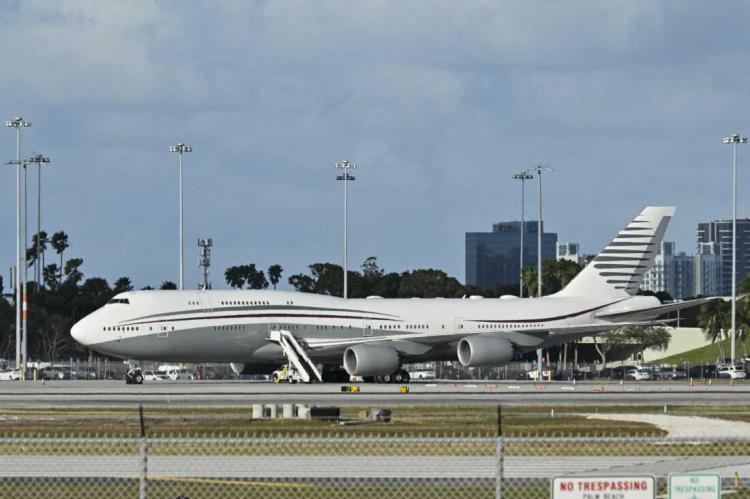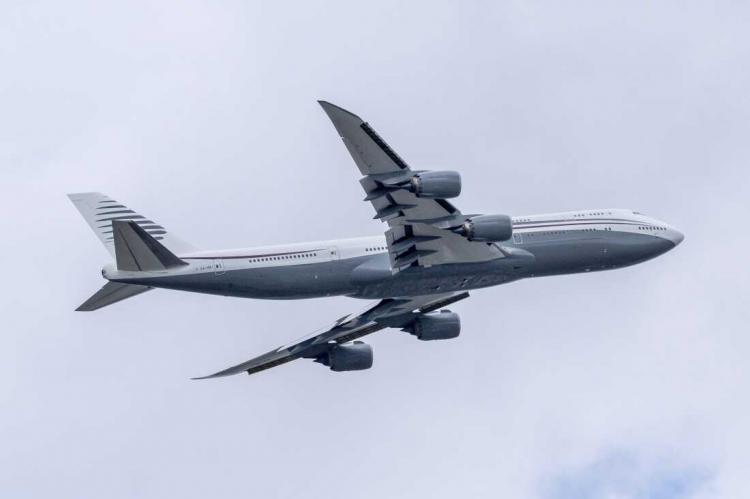The Price of a Gift: How a Jet from Qatar Exposed the Hypocrisy of U.S. Foreign Policy
By Omar Silva I Editor/Publisher
National Perspective Belize I Digital 2025
Belize City: Thursday 22nd May 2025
“If this had happened in Venezuela, the U.S. would call it a bribe. But when it happens in Washington, they call it diplomacy.”
In what may become one of the most brazen displays of double standards in modern U.S. political history, the Trump administration has accepted a luxury Boeing 747 jet from the government of Qatar, purportedly to retrofit as a future Air Force One aircraft. The decision—swept under the guise of logistical necessity—has sparked outrage, raised questions of legality, and unveiled a stark contradiction in America's global narrative on anti-corruption and foreign influence.
This “gift,” valued at over $400 million when new, has reignited bipartisan condemnation. Critics warn it not only undermines national security but also sets a perilous precedent for diplomatic relations globally—especially in the Global South, where similar actions would have triggered economic sanctions, public condemnation, or worse.
When Is a Gift Really a Bribe?
To understand the gravity of this maneuver, one must first strip away the ceremonial language. A luxury aircraft—complete with a VIP interior and long-range capability—was handed to the sitting U.S. President by an oil-rich Gulf monarchy. In any other context, this would be labeled state-sponsored influence peddling.
But instead of rebuke, the Trump administration celebrated the gesture. Former President Trump brushed off concerns, calling it “stupid” not to accept the aircraft. Secretary of Defense Pete Hegseth authorized the military to proceed with retrofitting the plane—likely costing U.S. taxpayers upwards of $1 billion, according to Air Force estimates.
Yet no one has explained what Qatar gets in return. And therein lies the silent corruption of the deal.
A Dangerous Double Standard
Had this occurred in Latin America—say, if China gifted a jet to the President of Bolivia or Venezuela—Washington’s response would have been swift and severe. Headlines would scream “Beijing Buys Influence.” The U.S. Treasury would threaten sanctions. International watchdogs would denounce it as foreign interference.
But because it’s America doing the accepting, the rules shift.
This stark contrast in ethical judgment highlights a deep-seated hypocrisy. The United States, long self-appointed as the global arbiter of transparency and good governance, is now playing the very game it condemns others for.
It raises a chilling question for the developing world: If America can sell out its presidency for a jet, what moral ground does it have to question others?
What’s Qatar’s Real Endgame?
Qatar is no stranger to geopolitical chess. From securing World Cup hosting rights through lavish global lobbying to establishing a media empire in Al Jazeera, the small but immensely wealthy state has mastered the art of soft power.
With this aircraft, Qatar may not just be buying goodwill. It could be buying influence over defense contracts, military basing rights, or policy alignment in Middle Eastern conflicts. It could also be ensuring preferential access in future energy deals, arms sales, or diplomatic negotiations with a potential Trump 2024 comeback.
If successful, this move will normalize transactional diplomacy at the highest level—a scenario where influence is no longer earned through cooperation, but purchased through luxury.
Security Risk Disguised as Benevolence
Military experts have warned that retrofitting the 13-year-old jet to meet presidential security standards is not only expensive but risky. The aircraft lacks critical defense systems, encrypted communication modules, and anti-surveillance protections. Any failure in these upgrades could make the U.S. President a flying target.
Yet the administration appears more concerned with appearances than actual safety.
To quote Senator Tammy Duckworth:
“We have two fully operational Air Force One planes. We don’t need to accept a second-hand jet from a foreign government with unclear motives.”
The Pentagon has refused to disclose exact costs, even as defense contractors like L3 Harris Technologies have quietly been awarded contracts to overhaul the jet. Meanwhile, U.S. taxpayers are left in the dark.
The Global Message: Corruption is Fine—If You're America
This incident sends a clear message to the world: corruption isn't what you do, it's who does it.
If Belize, Mexico, or any African or Asian nation had accepted such a gift from a foreign power, U.S. embassies would be issuing warnings, and Western NGOs would be crying foul. Yet here we are, watching the most powerful democracy on earth normalize foreign gifts to its head of state.
Qatar may claim it is just being generous. Trump may say it's just business. But history will judge it for what it is: a stain on the U.S. presidency, and a mockery of the very democratic principles America claims to uphold.
Conclusion: The True Cost of the Free Jet
There is a saying in diplomacy: “There are no free lunches.” This jet may fly on American fuel, but it was greased by foreign intentions. It is a symbol of a world where the price of power is no longer integrity—but access.
And in this case, Qatar got its access. The world got its lesson. And America lost its moral compass.
- Log in to post comments


